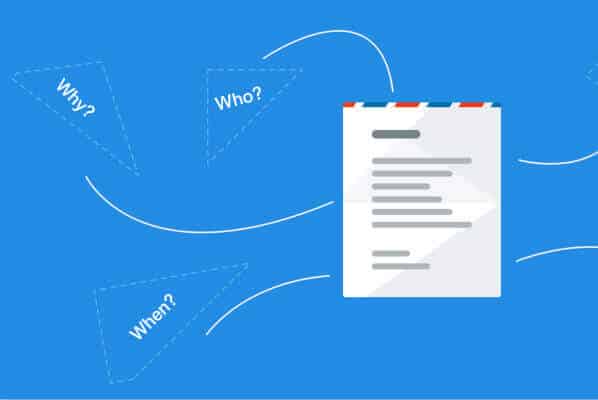
In a significantly globalized world, the capability to speak several languages has ended up being a valuable ability. German, as one of the most commonly spoken languages in Europe, typically finds itself at the top of the list for individuals looking to expand their linguistic capabilities. For students of the German language, obtaining the B1 German Certificate is a crucial turning point. It marks a considerable action towards accomplishing personal, scholastic, or expert objectives. However just what is the b1 zertifikat kaufen legal German Certificate, and why is it so essential? Let’s dive in.

The B1 German Certificate is an official language efficiency certification that indicates an intermediate level of German according to the Common European Framework of Reference for Languages (CEFR). The CEFR is a widely accepted structure utilized across Europe and beyond to gauge language skills in listening, speaking, reading, and composing.
At the B1 level, students are expected to have the following abilities:
Communicate effectively in daily situations: You should have the ability to deal with common tasks in work, Telc b1 prufung school, and leisure contexts.
Understand bottom lines of discussions: You need to comprehend the primary concepts when clear, standard language is utilized.
Express yourself with some spontaneity: While you might still need preparation for more complex interactions, you should be able to bring out standard discussions with native speakers.
Compose coherently: At this level, you can compose easy, connected texts on familiar topics like individual interests, travel, or domesticity.
The B1 certificate is frequently released by language institutions like the Goethe-Institut, telc B1 prufung (The European Language Certificates), or ÖSD (Österreichisches Sprachdiplom deutsch b1 zertifikat).
Why is the B1 German Certificate Important?
The B1 German Certificate serves as a proof that you have reached an intermediate level of efficiency in German. This can be useful in a number of contexts:
Residency and Citizenship Requirements:
In nations like Germany, Austria, and Switzerland, the B1 certificate frequently satisfies language requirements for long-term residency or citizenship applications.
For example, Germany’s migration offices may need candidates to demonstrate a B1-level proficiency to ensure that they can integrate effectively into society.
Education:
Many universities and academic organizations in German-speaking nations need international students to show a minimum of B1-level efficiency to enlist in specific programs, especially those that are partially taught in German.
Work:
German companies and worldwide employers with a presence in German-speaking nations may try to find candidates who have at least an intermediate level of language efficiency. The B1 certificate can assist enhance job prospects in markets such as tourist, healthcare, education, and business.
Personal Achievement:
For language students, getting the B1 German Certificate is a concrete achievement that showcases the effort and dedication they’ve put into finding out the language. It is likewise a solid foundation for progressing to higher levels of fluency, such as B2 or perhaps C1.
What Does the B1 Exam Involve?
Although the specifics depend upon the company that administers the exam, the structure of the deutsch b1 zertifikat certification test normally includes the following four components:
Reading:
Candidates are evaluated based on their ability to comprehend texts such as emails, instructions, ads, and short articles. You might be asked to identify essences, specific information, or the tone of the text.
Listening:
The listening area tests your understanding of spoken German in various situations, such as conversations, statements, or radio reports.
Writing:
In this part of the exam, prospects are needed to write short texts, such as individual letters, formal e-mails, or opinion-based essays.
Speaking:
The speaking section includes a mix of tasks, such as introducing yourself, discussing specific subjects, and getting involved in dialogues or problem-solving circumstances with another candidate or an examiner.
The exam’s total rating is normally divided across these areas, and you need a passing grade in each to earn the certificate.
How to Prepare for the B1 German Certificate
Here are a few tips to help you prepare for the B1 German Certificate exam:
Enroll in a Language Course:
Think about signing up with a structured B1-level course certified by a language organization such as the Goethe-Institut. Many courses are readily available both online and in-person.
Practice Regularly:
Dedicate time each day to strengthening your language skills. Focus on reading, listening, composing, and speaking to develop well-rounded efficiency.
Use Practice Tests:
Acquaint yourself with the test format by completing mock exams. These help you determine locations for enhancement and develop confidence before the wedding day.
Engage with Native Speakers:
Whether through language exchanges, discussion partners, telc b1 prufung or neighborhood events, consulting with native speakers is an excellent way to enhance fluency.
Take Advantage Of Online Resources:
Check out apps, videos, podcasts, and online exercises tailored for German learners. Popular platforms like Duolingo, Babbel, and Deutsche Welle deal a lot of products to help you master the language.
Conclusion
The B1 German Certificate is a valuable credential that opens a variety of opportunities, from improving work potential customers to satisfying residency requirements or pursuing scholastic undertakings. Achieving this certification is a testament to your dedication, durability, and passion for the German language and culture. Though the journey to B1 proficiency may be difficult, it is undoubtedly fulfilling– and it lays the foundation for even greater linguistic achievements in the future.
So, whether you’re considering taking the B1 exam to advance your profession, research study abroad, or merely for personal growth, the effort you put into mastering the language will deserve it. Start your journey today, and let this milestone be the stepping stone to fluency!





